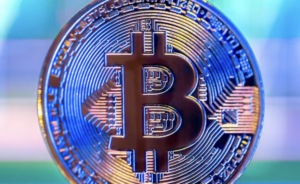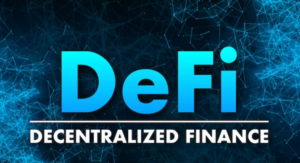$XMR #Monero #Cryptocurrency #Blockchain #MiningPools #Qubic #SelfishMining #CryptoSecurity #CryptoNews #DigitalCurrency #Decentralization
What Happens When Monero Erases 36 Minutes of Transactions? Discover the Impact!
In a startling turn of events, Monero’s news headlines were dominated by a significant blockchain reorganization, directly associated with the mining pool named Qubic. This unexpected development resulted in the deletion of 118 transactions, effectively rolling back 36 minutes of Monero’s transaction history. Such incidents raise substantial concerns about the integrity and stability of decentralized networks.
Understanding the Dynamics of the Reorg
A blockchain reorganization, often termed a ‘reorg’, happens when a particular version of the blockchain becomes accepted by the majority of miners as the de facto ledger, discarding another version. In Monero’s case, this reorg was not a product of consensus accidents but appeared to be linked to a mining strategy known as ‘selfish mining’. Selfish mining involves a mining pool keeping its discovered blocks private to gain an advantage over other miners, a tactic that can lead to network instability.
The Implications for Monero and Its Users
The primary concern for Monero users is the security of their transactions. A rollback of 36 minutes might seem brief, but it can significantly disrupt trust and operations within the network. For a cryptocurrency that prides itself on privacy and security, such events can shake the confidence of investors and users alike.
Moreover, this incident shines a light on the potential vulnerabilities within the Proof of Work (PoW) systems, especially in smaller, less decentralized networks. It also underscores the critical need for robust, transparent mining practices to uphold the network’s integrity.
What This Means for the Crypto Ecosystem
The Monero reorg is not just a standalone event but a symptom of larger challenges facing the blockchain technology landscape. As cryptocurrencies strive for wider adoption, the resilience and security of their underlying technologies must be ironclad to prevent such occurrences and ensure user trust.
For those interested in the broader implications of such events on the market, consider exploring further details on cryptocurrency trends and news. Additionally, for newcomers wishing to engage with the crypto market securely, it may be beneficial to start by understanding the fundamentals of blockchain technology through resources available on Binance Academy.
Navigating Future Challenges
The Monero reorg incident is a critical learning point for crypto developers and miners. The community must advocate for and implement more stringent security measures and perhaps reconsider the design and scalability of PoW algorithms. Furthermore, the event could accelerate the push towards more sustainable and secure consensus mechanisms like Proof of Stake (PoS), which are less susceptible to such risks.
Conclusion: Strengthening Trust Through Transparency
Ultimately, the Monero rollback serves as a potent reminder of the fragility of trust in the decentralized digital world. As the ecosystem matures, fostering a culture of transparency and robust security protocols will be paramount. Only through concerted efforts can the crypto community hope to mitigate such risks and enhance the credibility and reliability of cryptocurrencies.
In conclusion, while the Monero incident poses questions and challenges, it also offers the community an opportunity to fortify the network against future vulnerabilities, ensuring that Monero and other cryptocurrencies can provide a secure, stable, and trustworthy platform for users worldwide.







Comments are closed.